Women in Cardiology | Defining the Future: Summary and Discussion

The "Women in Cardiology - Defining the Future" event was a free webinar hosted by the Cardiovascular Institute of Philadelphia. This program explored mentorship, choosing a career path, and work-life balance through moderated discussion with a panel of women in cardiology.
The panelists offered perspectives from different stages of their careers and different fields of cardiology.
The night started as a structured discussion and grew into a robust, open conversation of women sharing their stories, experiences, and advice.
An important theme was the pursuit of work-life balance. While it may seem like an impossible task, especially during training, it was encouraging to hear the unified message that while challenging, there are ways to integrate the two.
We were reminded that following career passions and finding satisfaction in your professional life naturally brings joy in your personal life.

Cardiology can be a busy and demanding specialty, but institutions and job descriptions vary, and you can carve out a niche for yourself that is both professionally and personally fulfilling.
Another point that resonated with us was the importance of "building your village" and asking for support when needed. We appreciated the candor with which the panelists spoke about the many ways they delegate tasks and split domestic responsibilities within their support systems.
They noted that this was a learned skill that not only enriched personal relationships, but also allowed for them to focus time and energy on higher priorities. Certainly, none of us succeeds without leaning on others, and it is okay to ask for help. We were also reminded of the importance of asking for the roles and responsibilities we want in our careers and not waiting for them to be handed to us.
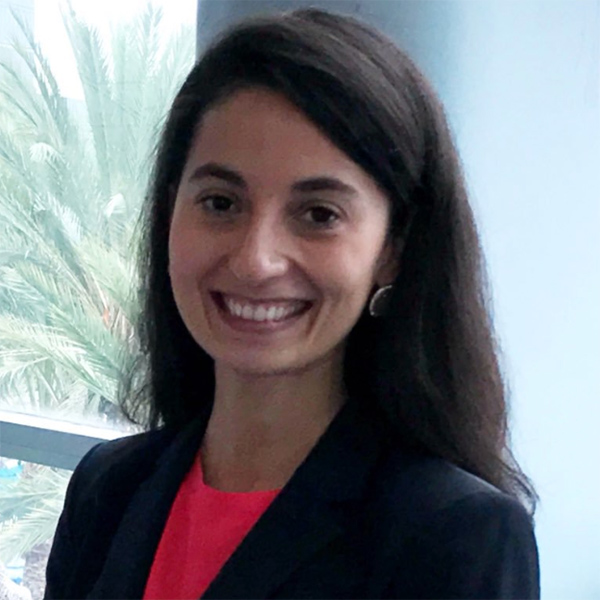
An important resource that was highlighted during the discussion was panelist Nosheen Reza, MD, FACC's recently published JACC paper "A Model for the Career Advancement of Women Fellows and Cardiologists."
This model, designed by the University of Pennsylvania Women in Cardiology group, offers an outline of pillars and institutional interventions to enable the career advancement of women in cardiology. This is a valuable resource for anyone looking to implement similar changes within their own institution.
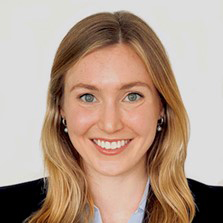
Jenna Spears' Experience/Takeaways
Despite planning and moderating the event, I could never have predicted the emotional connection and unity I felt within the group, and how inspired I was by all these incredible women. The panelists shared an unfiltered, honest account of challenges they had faced and how they overcame these in their careers.
After this event, I was left with a calming sense of reassurance in my own choice to pursue cardiology, which made me realize the importance of similar events, and networking opportunities for women trainees.
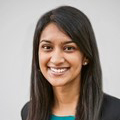
Alisha Jamil's Experience/Takeaways
I did not start or even end medical school thinking I would pursue cardiology. It wasn't until my intern year when I connected with women in the field that I was able to truly imagine myself in their shoes.
It is a reminder to me that representation matters. Exposure to role models and mentors with whom you identify is empowering and reaffirming.
Events like the Cardiovascular Institute of Philadelphia webinar are essential for women trainees, and I hope to attend many more.
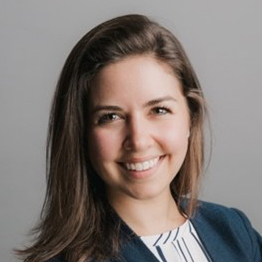
Katie Vanchiere Kipp's Experience/Takeaways
There was a time when I saw so few women in Cardiology that I thought it was not a path open to me. I have luckily encountered mentors and role models (women in Medicine/Cardiology as well as #HeForShe) who have actively encouraged my dream to become a Cardiologist.
In my residency training, countless amazing women in Cardiology have taken active mentoring and sponsorship roles in my life. Their examples have changed my perspective on what it means to be a Cardiologist.
The women speaking and in attendance at this event were exemplars of making this career path their own, finding balance and fulfillment as Cardiologists, and using their knowledge to advise and promote those on the path behind them.
I was energized by this event and reminded of the importance of asking for what I want and creating a village around me to help me achieve it.
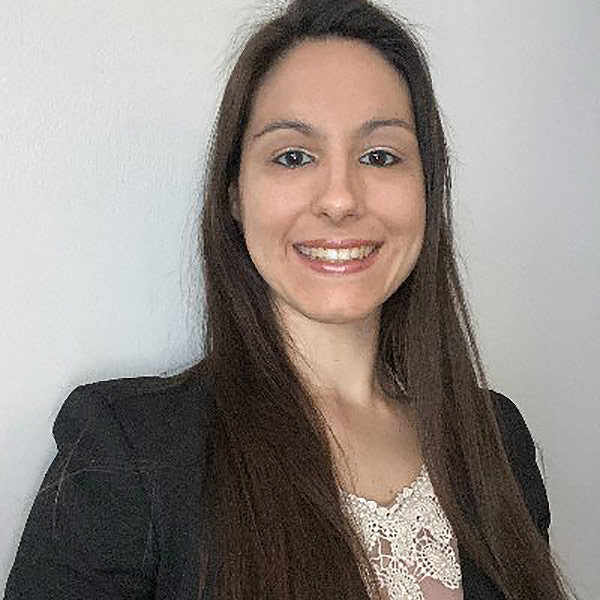
Melissa Alvarez's Experience/Takeaways
Being a woman attracted to a male dominated field has always made it difficult to find connections and mentors. Events like the one held by the Cardiovascular Institute of Philadelphia are extremely important for women trainees. Where I train, I have very few female mentors available to me as even the hospitalists are mainly men.
There is currently one female general cardiologist and no female proceduralists, and there is no Women in Cardiology chapter. It wasn't until I attended ACC 2019 in New Orleans and attended a Women in Cardiology meeting that I was able to talk to a large number of female cardiologists in different subspecialties.
I spoke with women in interventional cardiology who worked part-time, and I was blown away because I had never even imagined that as an option. There were women in EP working full time with children. It was a place where everyone felt so supported and uplifted. It truly made me feel as though I could pursue any field I wanted to.
I believe it is important for female trainees to be able to interact with attendings in the field. Oftentimes, we do not get that interaction and feel like we are alone in the struggles we face.

This article was authored by Jenna Spears, MD, a fellow at the Lankenau Medical Center in Pennsylvania. Twitter: @DrJennaSpears.
Resources
- Reza N, Krishnan S, Adusumalli S. A Model for the Career Advancement of Women Fellows and Cardiologists. J Am Coll Cardiol. 2020 Aug 25;76(8):996-1000. doi: 10.1016/j.jacc.2020.07.011. PMID: 32819474; PMCID: PMC7733708.
This content was developed independently from the content developed for ACC.org. This content was not reviewed by the American College of Cardiology (ACC) for medical accuracy and the content is provided on an "as is" basis. Inclusion on ACC.org does not constitute a guarantee or endorsement by the ACC and ACC makes no warranty that the content is accurate, complete or error-free. The content is not a substitute for personalized medical advice and is not intended to be used as the sole basis for making individualized medical or health-related decisions. Statements or opinions expressed in this content reflect the views of the authors and do not reflect the official policy of ACC.